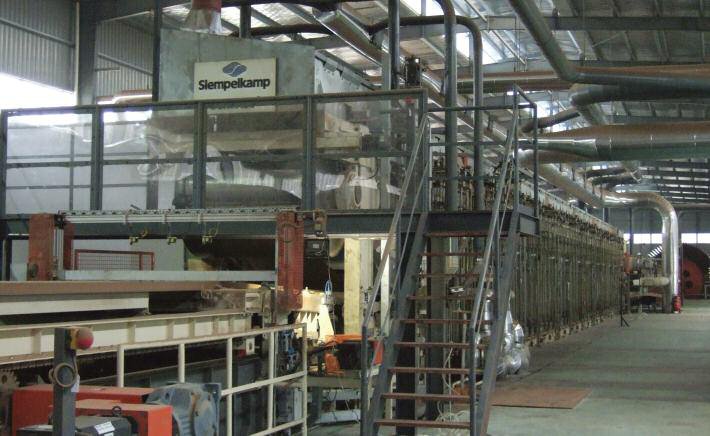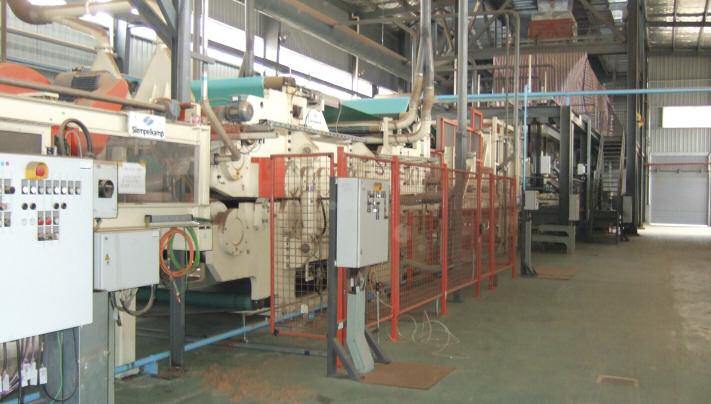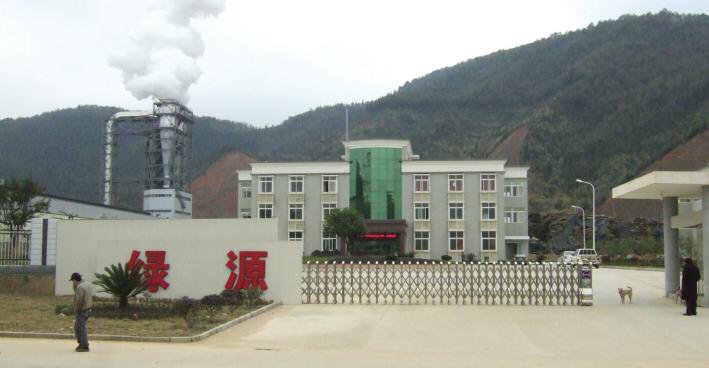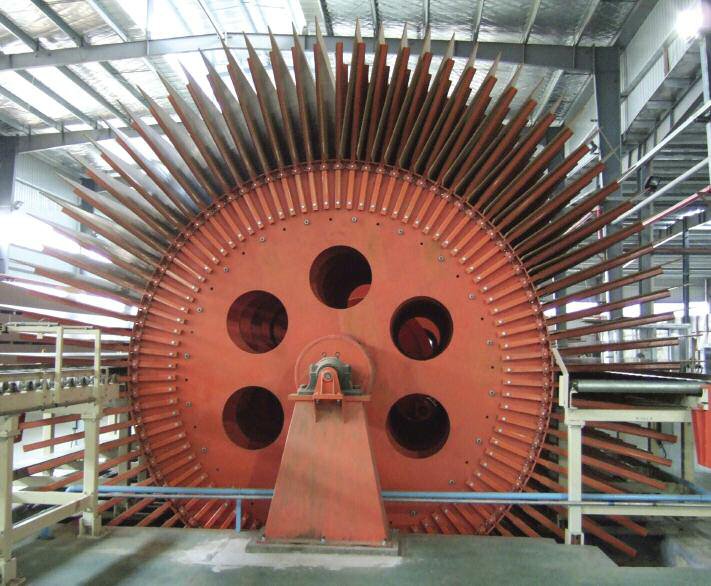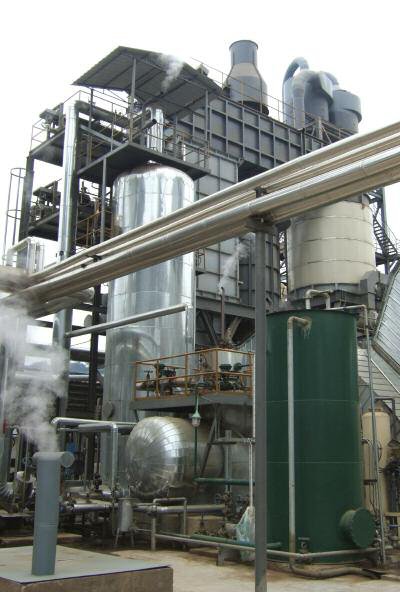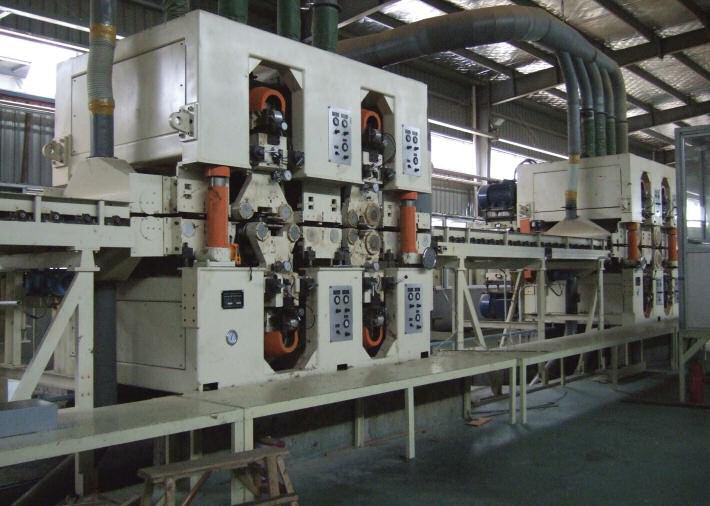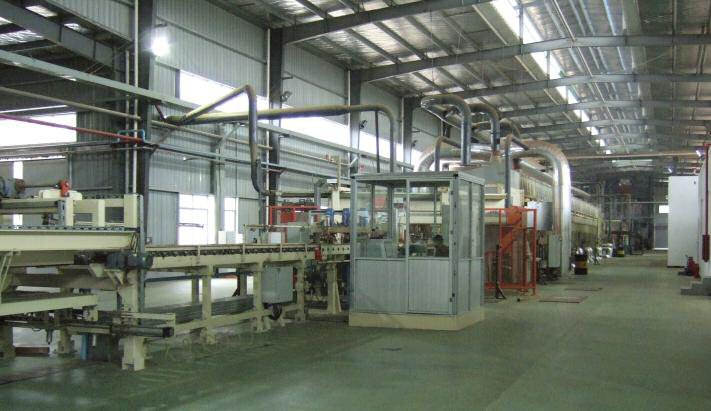Luyuan goes for narrower line at Shaowu
25 May 2011In common with many other ‘traditional’ panel makers in China, as opposed to those who joined the industry from other backgrounds, Suichang Luyuan Wood Co Ltd started out making wet process fibreboard (hardboard), in Suichang County, in 1985.
Ten years later it built its first MDF line, using equipment from Shanghai Wood Based Panel Machinery Co Ltd (SWPM). Another two similar 15-daylight lines followed, in 1996 and 1997.
Luyuan then bought a greenfield site in a new industrial area in Suichang County, where it built its first continuous MDF production line, from Siempelkamp. This 23.8m x 8ft ContiRoll line produced its first board in December 2003.
A second, similar, ContiRoll MDF line went into production in September 2007, this time in Yangdong, Guangdong province.
Rumours were floating around when WBPI visited that line in 2008 that a third line was planned – and along it came – but this was a rather different ContiRoll line, in Shaowu, Fujian province.
Luyuan (Shaowu) Wood Industry Co Ltd had four main reasons for building its latest production line in Shaowu.
Firstly, it already had a 10-year-old multiopening MDF line in Shaowu, producing around 70,000m3/year on a line originally designed for less than half that capacity.
The company’s management decided it wanted to improve the quality produced in Shaowu to meet the market requirements and so signed another contract with Siempelkamp for a ContiRoll press line, in November 2009.
It was not possible to build the new line on the same factory site as the original one because Shaowu City had expanded over the intervening years, engulfing the old industrial area. So, in 2007, Luyuan bought a new plot of land on the outskirts of the city for its new line, which required considerable excavation to produce a level site.
The multi-opening line was shut down two months before the new continuous line made its first board in September 2010 and the site will eventually revert to the local government for housing development: The equipment from the old line is up for sale when a suitable buyer, and price, are found.
The second reason for staying in Shaowu was the fact that the company had plenty of skilled people available to staff the new factory, explained Lin Li Sheng, vice manager of Luyuan (Shaowu), who, unusually in the Chinese industry, speaks excellent English.
Thirdly, and importantly, was the consideration of raw material. “In China, there is a shortage of wood everywhere, but at least here it is better than in many other cities,said Mr Lin. The wood supply is mostly hardwood mixed species, from a radius of about 200km.
“Our fourth reason for building here was that we already have a customer base here and it would just have increased the transport costs if we had built the new line further away,he added.
So Luyuan group has three imported continuous-press production lines:in Suichang, Zhejiang province; Yangdong, Guangdong province; and this one in Shaowu in Fujian. All are from Siempelkamp.
“We still have some multi-opening lines as well, though we have sold some as running,said Mr Lin. “The last two years have seen so much change it is difficult even for me to keep up! We used to have about 10 multiopening lines, but today we have about four.
“Our capacity today is about one million m3 – the same as it was at the end of 2007, but with some of the older lines closed, we have improved our panel quality.”
The main market for Luyuan (Shaowu)’s production is in ‘neighbouring’ provinces of Zhejiang, Shanghai, Fujian and Jiangsu, with a small amount of production going to Guangdong, “But there are too many other lines in Guangdong,said Mr Lin.
The latest Shaowu line is from Siempelkamp but is slightly unusual in that it is a four-feet-wide ContiRoll press rather than eight- or nine-feet.
The 38m-long press has a design capacity of 150,000m3, but Mr Lin believes the line may ultimately reach 160,000m3.
“An eight-feet press of 38m length would have an expected capacity of about 200,000m3 so our original design capacity was 100,000m3 but Siempelkamp this year already increased it to 150,000m3,said the vice manager.
“It is the first four-foot ContiRoll for the Luyuan group and was only the second in China,he added.
Luyuan does not employ a debarker as Mr Lin feels the logs are too small and irregular for that to be effective. The chipper is of Chinese manufacture.
The refiner is from Andritz of Austria and is a 50/54in unit. It is housed, not behind the control room as is commonplace, but in a separate building, where it has its own separate control room.
“We designed the gluing system by ourselves, buying in the pumps and so on, with the assembly – and the computer controls – done by our own staff,said Mr Lin. As is almost universal in the Chinese panel industry, the site also has its own resin making plant.
From the fibre bunker to the diagonal cross-cut saw was the responsibility of Siempelkamp.
The GTS energy system is of course fed partly with residues from the factory, but the main fuel supply comes from a local woodworking factory. The fact that summer temperatures rise to around 37-38oC in Shaowu should save a little on heat energy generation!
Sanding and cut-to-size are taken care of by Chinese-made Sufoma machines, with an eight-head sander.
Siempelkamp subsidiary Sicoplan supplied the thickness/blister monitoring on the line, as well as the diagonal cross-cut saw.
Fire protection on bunkers and so on was supplied by German company Kidde.
The Shaowu site in total covers an area of about 300mu (20ha), but only 200mu is currently in use by the factory as there is housing, where people are still living, on the rest at present.
The whole production line building is light and airy. “We spend money on space, light, a clean factory and clean air,said Mr Lin proudly – and it shows.
The line was designed to make from 2.5mm HDF up to 40mm MDF, but mainly produces 6 to 25mm for furniture makers.
“We also supply HDF for flooring and sometimes doorskins,said the vice manager.
Production is mainly E1 grade, with some E2 and Mr Lin said they can make E0 as well, if required.
Luyuan does not produce any value-added products itself, sticking to manufacturing raw board only.
The 4ft ContiRoll line went into full production in December 2010.
When it comes to future plans for the Luyuan group, Mr Lin said they normally build a new line every two years, but there are no plans for further capacity at Shaowu as there would not be sufficient wood supply.
“Our headquarters may think about their next move when this line is running fully – we have to earn the money first!”
I asked Mr Lin for his views on the situation in the Chinese market in general.
“For the future in China, I think companies will continue to replace old multiopening lines with continuous ones and the four feet lines have become very popular in recent years,he said.
Competition and cost increases have taken their toll on all the Chinese panel manufacturers and Luyuan is apparently no exception.
“Compared to last year, the profit is getting less and less, with log costs rising, chemical costs rising and wages also increasing; all the costs are rising but the [selling] price stays the same – or sometimes even lower.
“I think that OSB will have a problem, too, as we don’t have enough big logs in China.”
So what does he think about particleboard?
“Ten years ago, the particleboard price was not good, but now it is better than MDF and I think that in the coming years, particleboard will increase fast. A lot of foreign [furniture] manufacturers are coming into China and they have good machinery to utilise particleboard and will need supplies. Also, some manufacturers need particleboard as they are exporting furniture to markets that expect it,concluded Mr Lin.
